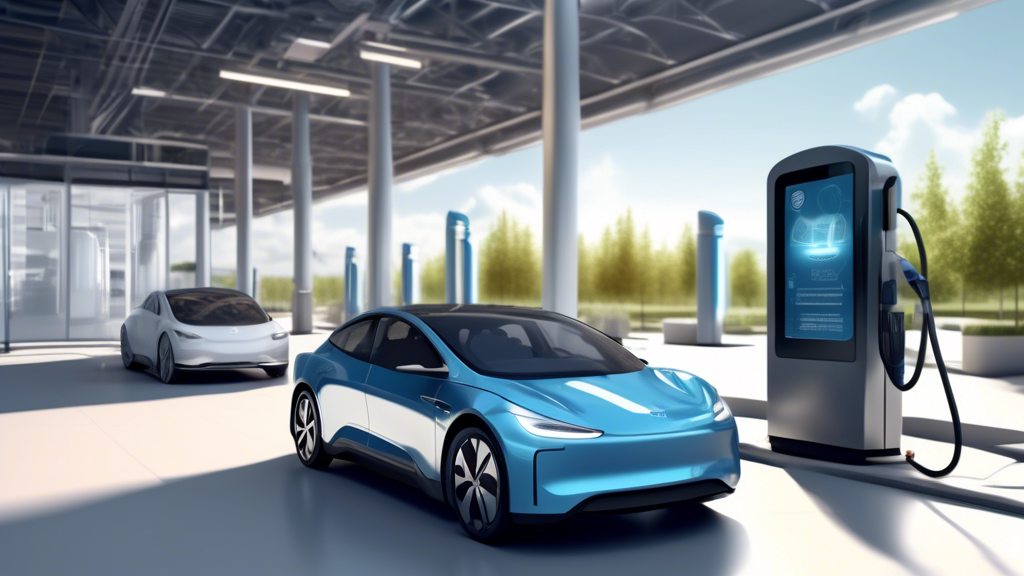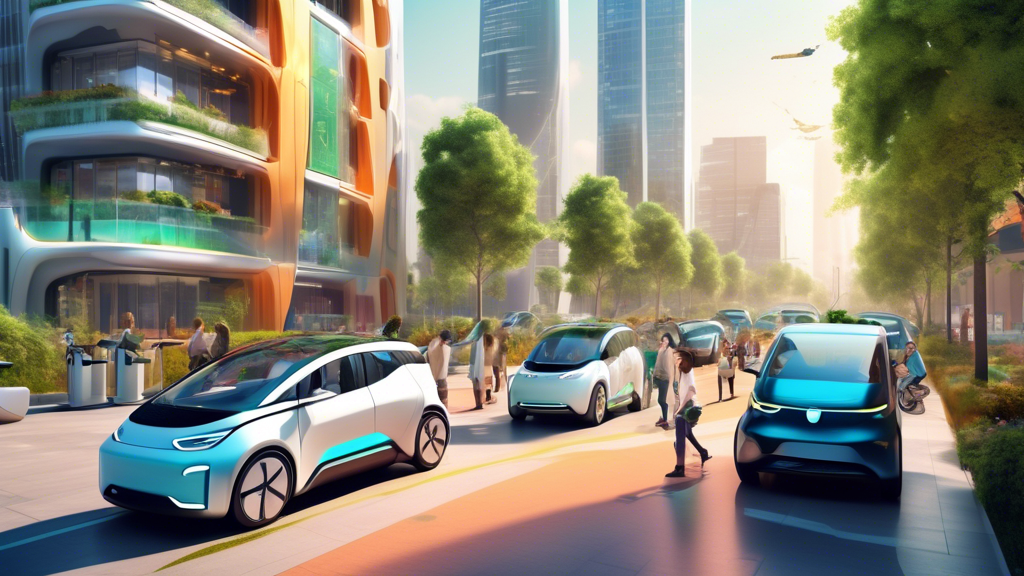Is the era of affordable electric vehicles here? Recent trends in electric vehicle pricing suggest a revolution is on the horizon. Imagine driving home in your sleek, eco-friendly electric car without the burden of a car. This is becoming a reality as electric vehicle prices have dropped dramatically. But what is driving this decline in affordability?
Several factors are contributing to this exciting trend. Advances in battery technology and production methods have played a crucial role. Increased competition among automakers is fueling price cuts. In addition, government incentives and subsidies are making electric vehicles more attractive, while economies of scale are boosting production as manufacturers ramp up production.
This shift in the electric vehicle market is of great importance to consumers and the automotive industry. Lower electric vehicle prices mean more people can enjoy the benefits of electric vehicles. It also disrupts the traditional gasoline-powered vehicle market and paves the way for environmental gains by reducing carbon emissions.
As you continue reading, you’ll discover the main reasons why electric car prices are falling and what this means for the future. Get ready to be part of the electric revolution—one that’s greener, more economical, and more accessible.
Electric car prices fall
Introduction: The Changing Landscape of Electric Vehicle Pricing
Have you noticed that electric car prices are dropping like a new hit song? This shift is shaking up the automotive market, heralding a future that is not only electric, but also budget-friendly.
An Overview of the Recent Trend in Electric Vehicle Price Cuts
In recent years, the prices of electric cars have been steadily declining. From luxury models to more affordable options, consumers now have a wider range of choices. This is not just a passing phenomenon; it is a sustainable trend that signals a seismic shift in the automotive landscape.
Before you start imagining yourself cruising around in a shiny new electric car, let’s explore what’s driving these prices down. Is it magic? Or a technological revolution? Warning: It’s more complicated than that.
Factors Contributing to the Decline in Electric Car Prices
There are several factors that contribute to these attractive prices. Technological advancements, increased market competition, and government incentives are just a few of the major ones. Let’s delve into each of them.
Advances in battery technology: Improved battery efficiency and lower production costs are major contributors. Increased competition: More automakers are entering the electric vehicle market, leading to competitive pricing. Government incentives: Subsidies and tax breaks are making electric vehicles more accessible.
These factors are not only driving down prices, they are redefining the entire market. Consumers benefit from increased affordability, and automakers benefit from an expanded customer base. It’s a win-win scenario.
The importance of this trend for consumers and the automotive market
Why should we care about these trends? For consumers, lower electric vehicle prices mean greater accessibility. You no longer have to be an environmental enthusiast with deep pockets to buy an electric car. Even regular drivers can switch to electric cars, reducing their carbon footprint along the way.
For the automotive market, this trend represents a radical change. Traditional gasoline-powered vehicles are facing increasing competition from their electric counterparts. This shift is pushing automakers to innovate and adapt, leading to widespread industry advancement. As electric vehicles become more widespread, they are paving the way for a cleaner, more sustainable transportation sector.
So, are you ready to embrace the future on a budget? The changing landscape of electric vehicle pricing makes it easier than ever.
Volts and volts on average

The main reasons behind the decline in electric car prices
Developments in battery technology and production
Have you noticed how the price of electric cars has dropped lately? One of the main reasons for this is battery technology. Breakthroughs in this area are making batteries cheaper and more efficient. New materials and improved manufacturing processes are driving this change. Doesn’t it seem like batteries are the star of the show?
Increased competition among automakers
Remember when only a few companies made electric cars? Now, major automakers are jumping into the electric car market. Tesla, Nissan, and BMW are having to compete, which is driving down prices. Who would have thought that competition could be so good for consumers? It drives innovation and forces companies to offer more for less.
Government incentives and subsidies
Are you aware of the financial benefits you get when you buy an electric car? Governments around the world offer various incentives to encourage the adoption of electric cars. Tax breaks, rebates, and credits make electric cars more affordable. This support has led to a significant reduction in the initial cost for consumers. When was the last time you saw the government save you money in this way?
Economies of scale with increased production
More electric vehicles on the road means more production volumes, which leads to economies of scale. Manufacturers can cut costs as they increase production. Bulk purchasing of materials and streamlined assembly lines also help to lower prices. Have you ever noticed how things get cheaper when everyone starts buying them?
Understanding these key factors highlights how electric vehicles are becoming increasingly accessible and financially attractive. Are you ready to make the switch?
Volts and volts on average

Implications of lower electric car prices in the future
Increase access to and adoption of electric vehicles among broader populations
Have you ever wondered how much electric cars really need to become popular? Lower prices may be the answer. As electric car prices fall, more people can now afford this sustainable technology. This isn’t just good news for tech enthusiasts; it’s a huge shift for everyday consumers as well. Imagine a family weighing the cost of an electric car versus a conventional car and finding that an electric car is not only more viable, but also cheaper in the long run due to lower maintenance and fuel costs.
Impact on conventional gasoline vehicle market
Think traditional gasoline-powered cars are safe from the electric revolution? Think again. As more consumers opt for electric vehicles, demand for gasoline-powered vehicles will inevitably decline. Automakers are likely to shift their resources toward electric vehicles, driving innovation and competition even further. More brands are expected to expand their electric offerings and improve their technology. This shift could signal the twilight years of gasoline engines, just as the horse-drawn carriage became obsolete after the Model T went out of style.
Potential environmental benefits and carbon emissions reduction
Now, let’s get to the greener side of things. Lower electric car prices mean more EVs on the road, which means fewer greenhouse gas emissions. And a higher rate of EV adoption could dramatically reduce our collective carbon emissions. Imagine city streets with cleaner air and less noise pollution. Enthusiasts talk about saving the planet one EV at a time, and as prices fall, that lofty goal is getting closer to reality.
Electric Vehicle Market Future Trends, Predictions, Pricing and Innovation
So what does the future hold? As technology advances, we can expect more price cuts and innovation. Self-driving features, longer battery life, and faster charging times will become standard. Some experts predict that within a decade, electric cars will be more expensive than their gasoline counterparts across all segments. Buckle up, the road ahead is exciting. In essence, the ripple effects of today’s falling EV prices will shape the automotive landscape for years to come.
The falling prices of electric cars indicate a radical shift in the automotive industry. With developments such as improved battery technology and increased competition, electric cars are no longer luxury items reserved for a select few. These price cuts pave the way for greater accessibility, allowing a broader demographic to consider switching to electric cars.
Increasing government incentives and subsidies sweeten the deal, making electric vehicle ownership not just a possibility but a practical and economical choice. And as production increases, the benefits multiply. Economies of scale contribute to ever-lower prices, creating a ripple effect that benefits consumers and manufacturers alike.
Imagine a world where electric vehicles outnumber gasoline-powered vehicles. Fewer emissions, cleaner cities, and a major step forward in combating climate change—these are no longer illusions. The automotive landscape is evolving, and with it the promise of a more sustainable future.
With all the signs pointing to continued innovation and improved pricing, we have to ask: Is it time to rethink your next car purchase? The road ahead for electric cars is brighter, not just in their headlights, but also in the positive changes they herald.
Volts and volts on average



